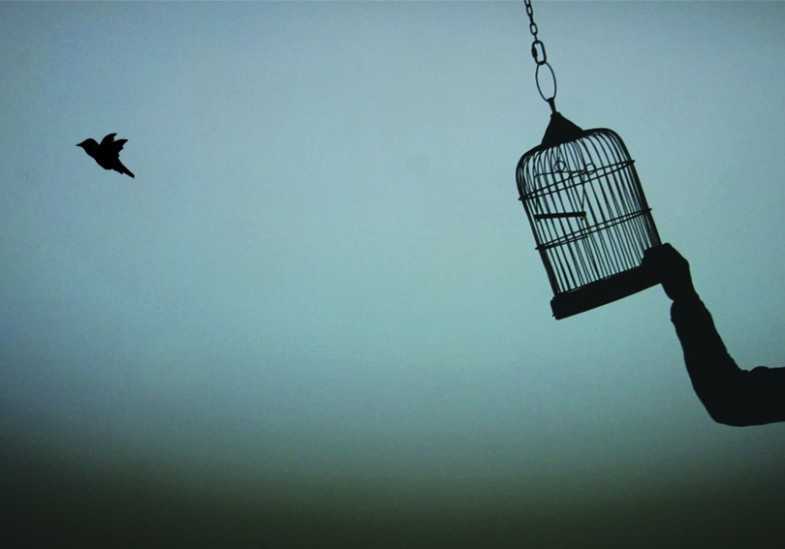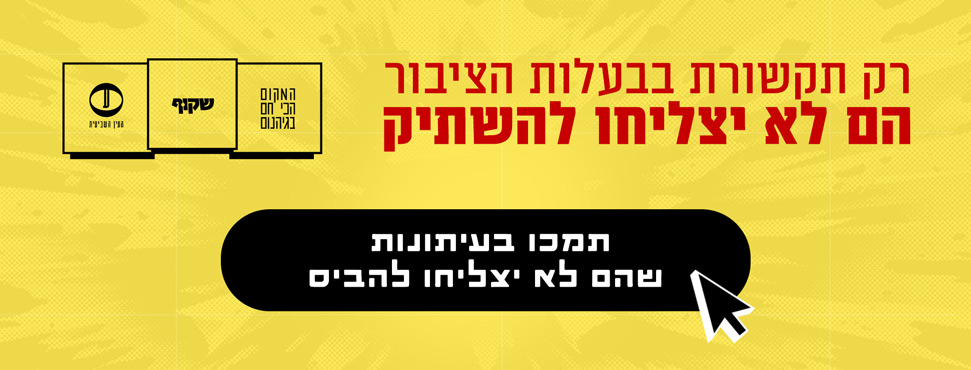"My name is Ronit. I'm Matan’s mother. When our son turned 18, my dear husband and I were appointed his guardians. Applying to become his legal guardians was part of the normal process parents like us go through in the special educational facility Matan attended at the time: When the kids approach the age of 18, you start going to meetings regarding exemption from military service and guardianship. Like all parents, we broke down and went along with this process. Today, I'm very angry with myself for what I’ve done. I consider it one of the biggest mistakes of my life”.
"I'm telling you our story to show you that behind this word, guardianship, there is a life. I bring you the face behind the issue. I live today knowing that I, the Mother of Matan, the person I love and cherish more than anybody else, caused, by my own hands, the denial of his most basic right as a human being – the right to freedom."
These words were spoken by Ronit Dan, the mother of Matan, a young man who is currently completing his national service, as she addressed the Knesset's Constitution, Law and Justice Committee. The discussion was one of many held in the last six month regarding an amendment to Israel's Legal Capacity and Guardianship Law. Last Tuesday, the Knesset Plenum approved the amendment, and the additions to the law included, among other things, clauses that bring dramatic change to the field of supported decision making and enduring power of attorney, which are explained below.
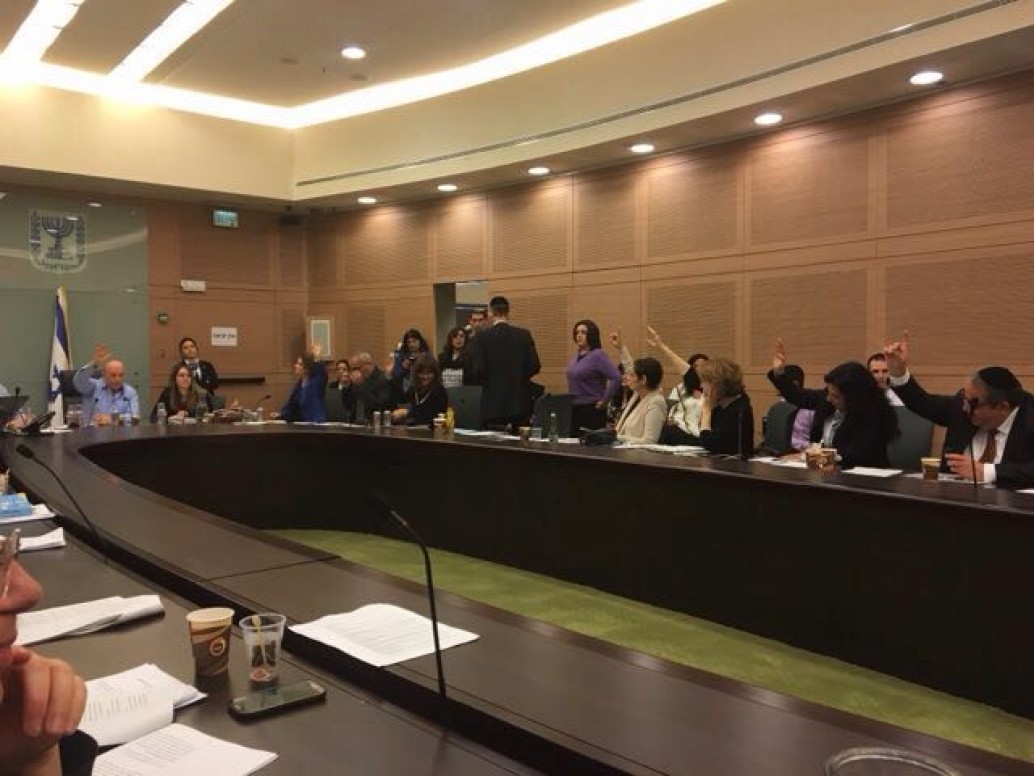
"When we told Matan that we are his guardians he was deeply offended. He literally shrank into himself", Ronit says. "I felt I’d made a mistake, but I had no other choice. I’d also been scared into believing that unless he had guardians, he’d be vulnerable to harm and abuse. I was told that this was in his best interest.
"When you have a child with special needs, you yourself, as a mother, go through a process of reppression, of attrition, caused by professionals, in your faith – as a parent – in your child’s abilities. As Matan grew up and I came to know him better, I went through what I call an "awareness journey" and I understood that I needed to strengthen and empower him, that I'm allowed to encourage him to live his life to the fullest. When he started his national service it opened my eyes to his many abilities.
"Through Matan's national service in an organization called "Kesher", I was exposed to a conference on the topic of supported decision making, which was organized in conjunction with Bizchut. We heard they were running a pilot program. Suddenly I saw a way to free my son. I'm a woman of faith, and when I came home that day, I prayed and wrote down, with a big marker, for me and for God: "Matan will be free of the guardianship. Matan will have a normal life. Starting now. This minute".
The very next morning I called the social worker and asked her for details on the pilot. I was very determined to get in. She put me in touch with Yotam Tolub, Executive Director of Bizchut, an organization that promotes the rights of persons with disabilities. We were the last to join the pilot, and thanks to it, Matan became a free person. When the guardianship was removed, we held a "freedom feast" together with everyone who helped us along the way. When I realized I can join Bizchut's activity and help change the law so that supported decision making becomes available to other people like my son – I didn't hesitate. I accompanied Matan, who also spoke before committees. This is the journey we took together”.
People themselves will have the final word
I doubt any of you have heard that last Tuesday, the Knesset Plenum passed a dramatic amendment to the Legal Capacity and Guardianship Law. This is a reform – a revolutionary change in the lives of hundreds of thousands of people in Israel, defined as "wards", who may not or cannot take responsibility for their own bodies or finances, mostly due to disability, illness or old age.
Every year Israeli courts approve about 15,000 guardianship appointments. Each one of these appointments means that the state has transferred a person's right to make decisions regarding his or her life to the appointed guardian, usually a family member or a state-appointed guardian. This is an all-embracing step, which is very difficult to reverse. Only 10% of the wards get to stand before a judge during the process. In most cases, the decision to remove a person's right to run his own life is based on the professional opinion of a doctor, who determines that the person is not legally capable, and cannot be responsible for his or her actions.
"The changes in the guardianship law are an important and revolutionary move", wrote Minister of Justice Shaked in an interview we conducted with her via e-mail. "These changes are true to the UN Convention on the Rights of Persons with Disabilities. The purpose of the Convention is to protect the basic freedoms of persons with disabilities, to make sure they enjoy equality before the law and receive their full rights. The law expresses the important value of respecting a person's wishes”.
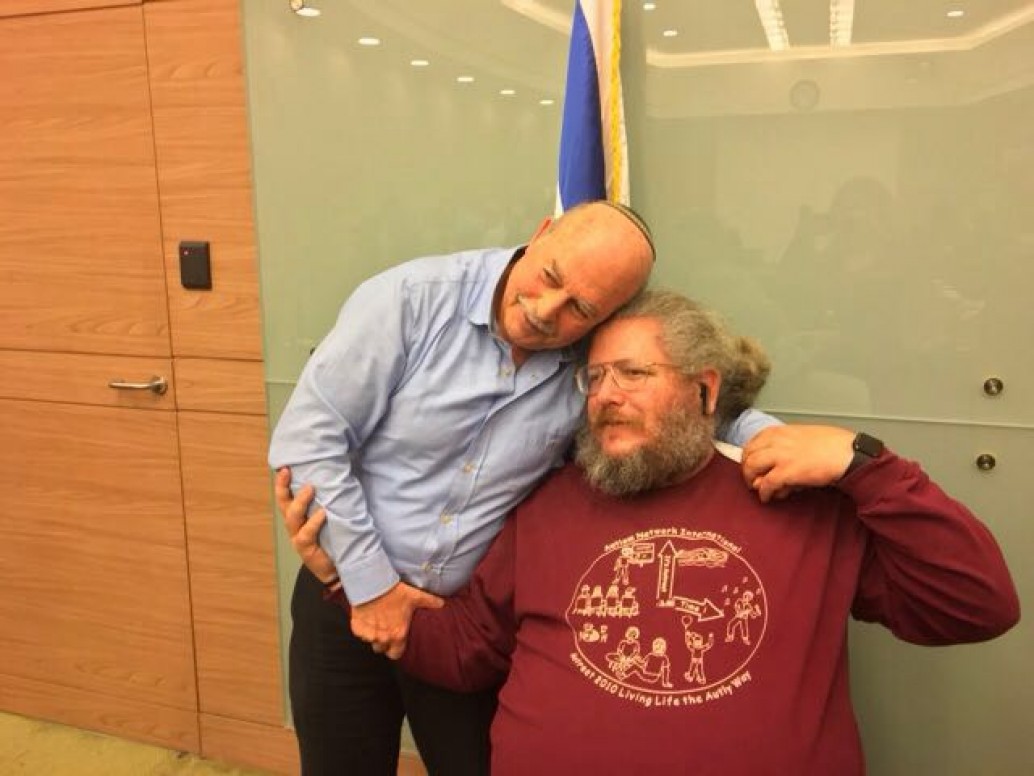
"The two biggest amendments in the law are the supported decision making model and the possibility to give enduring powers of attorney.
Supported Decision Making is a model that provides an alternative to the institution of guardianship. The model will allow the appointment of a supporter – a person whose role is to assist a person with a disability in running his or her financial affairs and provide consultation in making necessary decisions. While a guardian is the sole decision maker for the supported person, in the new model, the supporter is only an adviser – the person has the final word. This is a gentler alternative that will allow people to keep their autonomy while receiving assistance according to their own choice. The amendment was made because some people have minor disabilities or ones that do not disqualify them from legally capacity. There is no reason to deny these people their freedom. This model has been implemented in many countries around the world and by adopting it, Israel is falling in line with the rest of the world.
The power of attorney model allows people to determine who will take care of their affairs while they are still capable of making that decision. Instead of a situation in which a person reaches old age and has a guardian appointed without formally consenting – he or she can take care of it ahead of time. These two changes manifest the basic dignity of people with disabilities, and especially, before anything else, allow their voices to be heard.
It was impossible to stay indifferent to the request
"There is no doubt that a paradigm shift is taking place here", says Bizchut ED, Adv. Yotam Tolub, with excitement. Tolub ran the supported decision making pilot in which Dan participated, on behalf of the organization. "The discussions held in the Constitution, Law and Justice Committee in the last six months were amazing. We sat there, legislatures, NGO representatives, jurists, parents – but first and foremost, persons with disabilities themselves. And they had the floor to make themselves heard. Unfortunately, this is not something you can take for granted. There was very intensive work on this, a collaboration between many different actors, and just sitting together led to a real partnership”.
How did you become involved in the issue of the guardianship law?
"About seven years ago, a young women named Batya (alias), who has Down syndrome came to us. She was so angry that her biological parents had been appointed her guardians instead of the person who was "my real mother", in her words, who had taken care of her ever since she was three months old. The welfare officials thought this was best for her and there was no discussion.
We filed a motion in court on her behalf, and the judge granted her request, but I was uncomfortable with this victory. Was that the maximum we could do? Letting a person decide who will make decisions for her? Batya was an independent, smart woman, and her wishes were very very clear, and still she received letters from the Bank where, next to her name, the word “ward” appeared in brackets. She told me: 'Why should anyone who sees my letters know that I'm a ward?' and I thought – why should she be a ward at all? Because of Batya and hundreds of other people who approached Bizchut we decided to take action
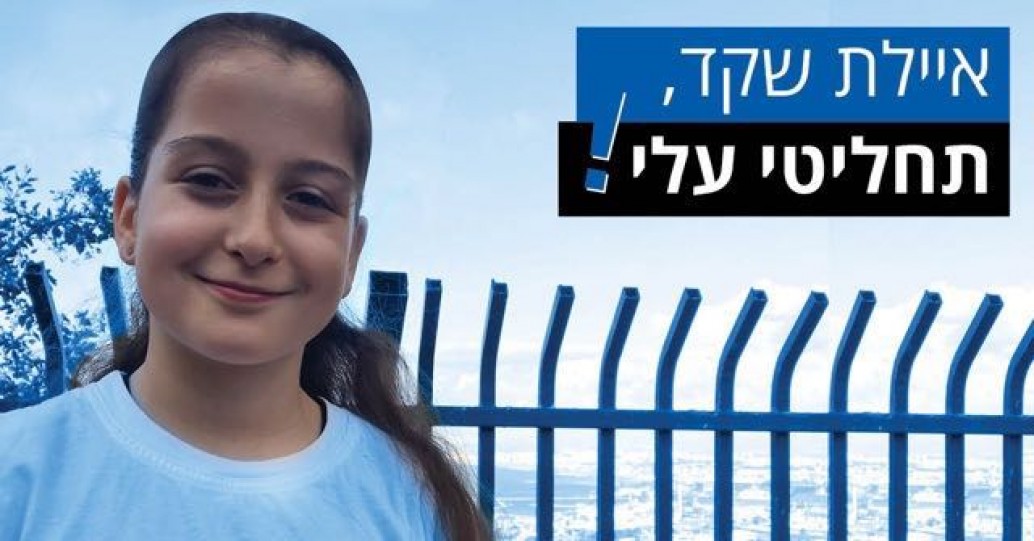
You’ve said that beyond the legal achievement, a paradigm shift is underway
"Absolutely! It's important to me to point out that this move had many partners – from the Ministry of Justice, from the legal bureaus, and from the civil society organizations who acted in full cooperation. However, it was always clear who the "main actors" in the story were. It was very important for us that the committee hears directly from people who are or have been under guardianship and who are waiting for a different solution.
"During the first discussion, after all the representatives of the government presented the bill, which didn't include supported decision making, it was civil society's turn. One after the other, the committee heard the life stories behind the printed words. People on the autistic spectrum, people with intellectual or psychosocial disabilities who asked for supported decision making to be recognized. It was impossible to stay indifferent to this request, coming from the people themselves, from human beings. After that first discussion, the committee's chair, Nissan Slomiansky said: ‘We will endeavor to include supported decision-making as well’. He said, and he was true to his word.
"It's also important for me to add that all along, the people were treated with respect, as equals, and this is what I mean when I say there has been a paradigm shift. These people, some of whom are still, unfortunately, considered wards according to the law, were actually given the ability to influence their fate. They didn’t just give “testimonials”. They were partners for all intents and purposes. The things they said were recorded in the session transcripts and fully taken into account in the legislation itself".
You’re painting a rosy picture. Were there any objections?
“Of course there were. The louder the organizations spoke against guardianship, the louder the supporters of the old concept became. Every once in a while, an argument about guardianship would erupt. We said it was denial of freedom. They answered it was protection and concern for the disempowered. I think that because the old concept is still quite prevalent, the law is still lacking. The leading test for decisions is still a person’s best interest rather than wishes, even though we think the term “best interest” is a vacuous term which is at best, misused, and at worst, abused. There are still expert reports that determine if a person is capable. There is still the option of declaring a person as having no legal capacity, and budgetary concerns still trump rights. We had three demands in terms of procedure: a duty to have a hearing and to hear the person at this hearing, a duty to provide the person with free legal counsel and a duty to limit the duration of the appointment. All three were rejected due to budgetary concerns. The judiciary administration revealed that only one in ten persons who are appointed a guardian get a court hearing. In my experience, it is much harder to appoint a guardian for a person who appears in court and looks the judge in the eye. So we still have a lot of work left to do”.
The “Messiah” comes to testify to the committee
“I have a combination of schizophrenia and bi-polar disorder”, says David Yisrael Cohen, an activist and Tai-Chi and therapeutic movement instructor who works with persons who are facing psychosocial difficulties. The law still considers David a ward and he spoke to us with the consent of his father, who is his guardian.
“Through the six months of work at the Knesset committee, I went through a schizoaffective episode. I stopped taking medication. I stopped eating and sleeping. I walked the streets thinking I was a son of light and that I was engaged in an all-out war with the sons of darkness over the word; that I was the Messiah and that I had a direct connection to the divine essence and the universe. You see, the process in these committees, and my need to fix my life, the universe, the dismissive attitude I get, all superimposed itself on my psychosis. But I insisted not to make things look nice, and appear before the committee in this state”.
You sat in front of the Knesset Constitution, Law and Justice Committee and told them you were the Messiah?
“Yes. I told them exactly how I felt, and I asked why this was reason enough to deny me my freedom for all eternity. I don’t deny that I need help and support, in making decisions too, but I don’t think that the fact that I experience reality differently, or that I have episodes where I go through tremendous difficulty is reason enough for this. I’ll never forget Chair Committee Nissan Slomiansky’s reaction. He said there were entire publics in Israel that experience reality in the country as a war between the sons of light and the sons of darkness. They go and live in remote places with their children, risking their lives, and yet even those who fundamentally disagree with them don’t even dream of taking away their control over their bodies and souls. ‘In our public, you would have been a star’, he told me. It was a joke of course, but it was also very real. You could say that I came to the Knesset with all sorts of preconceived notions about MKs. I thought these were people who always bickered, busy with trifles. But in the sessions I attended, I felt they saw me as a person and that they were listening to me.
“I was put under guardianship when I was in a particularly difficult state, but I’m not always in that state. Mental illness is not, or not always, a constant state. I need different supports at different times. For me, guardianship is a brutal and violent process, even though my guardian is my father and we have a very close, warm relationship. My father is also concerned about the future and wants to find an alternative to guardianship. He has been by my side through the whole process, and he will always be by my side.
“Look, ostensibly, I gave up my freedom. Fifteen years ago, when I was a very young man, going through a very tough time in my life, I signed consent to guardianship. But it was out of complete lack of choice, because I was dependent on the person who took care of me. I was afraid for my life. I was afraid of being committed, afraid of being on the street. There has to be an alternative for people like me so we don’t have to choose between getting help and treatment and our freedom”.
“The last six months have changed me as a person”
“I know I my image isn’t one of a person who deals with human and civil rights issues”, says MK Nissan Slomiansky (Jewish Home), chair of the Constitution, Law and Justice Committee, and the person activists say pushed the amendment to the Guardianship Law. “People associate me more with the ‘stop-and-frisk law’ or the ‘counter-terrorism’ law. I’m thought of as someone who wants to give the state more power, and it’s true! But, at the same time, I have to give power to the people too. I believe there always has to be a delicate balance between state rights and human rights, and I also believe that this is something that is required under Jewish law and tradition. One person who was very helpful to me on this issue was MK Yael German from Yesh Atid. In fact, there’s a general sense that this issue cuts across parties and opinions.
“The last six months have changed me as a person. I came without any background on persons with disabilities, and I met people who were my equals in every way. I was very impressed with them. All of them. Their courage and strength to come and share with us what they’ve been through. I understood that guardianship, which, according to the law, is meant to protect people in weakened positions, sometimes does the opposite – it holds a person’s development back, it stops him.
“I’ll never forget how Ronit, Matan’s mother, asked her son for forgiveness, and how Matan asked us to give people like him freedom, and many others. I was particularly impressed with Ronen Gil from ACI(the Autistic Community of Israel – full disclosure here, the author is part of this organization), who came to the sessions better prepared than all the lawyers put together, and insisted with us on every single clause. The people weren’t just part of the process, they were its heart and soul, and I’m very proud of this amendment.
And still, the law does not provide for a duty to bring every person for whom a guardian is appointed before a judge, because of budgetary issues. How does that fit your world view?
“It doesn’t fit my worldview at all! And I promise to keep fighting for it. The situation is intolerable, but since the welfare and finance ministries have an estimate showing that a move like that would cost more than 30 million shekels, we weren’t able to pass the amendment within the current budget. I’ll do everything in power to pass it in the 2017 budget. I also find the argument that it would inconvenience people who are in a difficult state ridiculous. Obviously, a person with a very serious disability or illness etc., who waives the right or is absolutely unable to use it, won’t be compelled to show up, but every person who is capable of expressing his wishes to a judge should be able to do so. In fact, my ambition is to take the supported decision making agreements out of the court system and have them made before a registrar in a legally binding process. This is a civilian procedure that has to be much simpler, and there is no reason to unnecessarily burden either the courts or the person and his family.
“I really enjoyed working on this law. I became very attached to everyone who was involved. This isn’t a feeling that comes with every legislative procedure and I will no doubt miss the people I now call ‘my family’. Lucky for me, though we did make a historic move, and put a foot through the door, there’s much more that needs fixing, so we will surely meet again.
“What happened here was a revolution”
“I grew up with a mother who has been a ward ever since I was three-years-old, a mother who was – wrongly, in my opinion – diagnosed with schizophrenia, and though she was a talented and intelligent woman, could not raise me”, says Ronen Gil, an ACI founder, and a person named by all those involved in the law as the leading activist who did not miss a single meeting, or let any clause pass by without commenting on it, even though he has no formal legal education. Ronen Gil himself is on the autism spectrum, as are his two daughters, one of whom, 10-year-old Keren Tal, asked to participate in Bizchut’s internet campaign to promote the amendment.
“I came to this action with a lot of scars from previous Knesset processes, where I wasn’t always allowed to express myself, and when I was, I had to fight to be heard, and even then, I wasn’t always understood correctly”, he says. “It took a lot of me, but I knew I couldn’t let my family history repeat itself. I can’t stand the thought that, never mind me, but my daughters would lose their freedom once I’m no longer here to care for them.
I’m thrilled with this change, and hope the state really internalizes it. The thing that surprised me was how at home I felt at the Knesset committee sessions this time. I felt that there was a lot of mutual respect between everyone: the professional experts who did an amazing job, the organizations, the persons with disabilities themselves. When I spoke, they wanted to understand me. The person who made an effort to translate what I was saying for everyone was, to my surprise, the chair of the committee, whose political views are the complete opposite of mine – openly lefty socialist that I am. He really insisted that people try to profoundly understand what I was saying – me and everyone else who spoke, including families and people with disabilities. That meant a lot to me.
Everyone I spoke with about this talked about a ‘journey’ and a ‘paradigm shift’
“I feel it too. I feel like people with disabilities are ‘on the radar’. The toughest things for us as a public is the sense that we are erased, silenced. The fact that people are patronizing toward us and do not treat us with mutual respect. It’s because it doesn’t even register that we have a place in the discourse, and we ourselves, aren’t always able to take that place for ourselves. Laws get written about us without us, without seeing that our human rights are violated, without accepting the fact that we have a special kind of expertise that has an essential role in society, and that we are certainly the biggest experts on our own lives.
“You know, what happened here was a revolution. It happened quietly, without too much media coverage, but it happened. To me, this is just the beginning.


